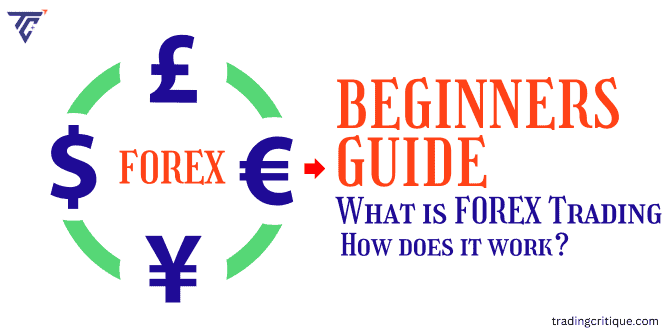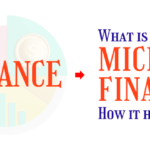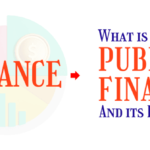What is forex trading? Forex trading, which stands for foreign exchange trading, is the activity of buying and selling different currencies around the world. It’s the biggest money market globally, where people try to make money by taking advantage of the changes in currency values.
What is forex currency trading? In forex, you trade pairs of trading currencies, like USD to CAD. The market decides the price based on the value of one currency (base currency) relative to the other (quote currency). Big banks and financial institutions are the main players in this.
Who’s involved in forex trading? The primary participants are big international banks, which actively trade with each other in a specialized arena known as the “interbank market.” Occasionally, other financial entities may also be part of these transactions.
But why does forex trading exist? One of its primary purposes is to facilitate international trade. It allows businesses to convert one currency based on the supply and demand dynamics, allowing seamless transactions across borders. For instance, a U.S. business can purchase goods from Europe and pay in Euros, even if their usual earnings are in U.S. dollars.
Why it’s so special? The foreign exchange market is special because it’s huge, spread all over the world, and never stops. It includes many different things. People use it to guess and make money from changes in the value of money.
What is the forex trading market?
Foreign exchange trading or the foreign exchange market is where banks, individuals, and various organizations trade, buy, or sell currencies for various reasons including hedging and speculation.
It is the world’s largest financial market, with participation from banks, trading companies, central banks, hedge funds, and more. It forms a worldwide system of computers and brokers, devoid of control by any singular exchange.
What is online forex trading?
Online forex trading, also known as forex, involves individuals buying and selling various currencies. Forex traders guess whether a currency’s price will go up or down. They buy when prices are low and sell when prices are high to make money.
There are over 200 different currencies to choose from, like US dollars and euros. The prices change a lot because of market conditions and government decisions.
How online forex trading works?
When buying something online from another country, you might need to change your local money to the country’s currency. The exchange rate decides how much money you need for the purchase.
It’s a popular and easy way to trade currencies on the internet. Forex traders do it from anywhere using a laptop and the internet. They use trusted websites to guess where currency prices are going and make buy or sell decisions online.
Many people like online Forex trading because it’s easy and handy. You don’t have to go anywhere – just need the internet.
In Forex, traders look at pairs like EUR/USD. The exchange rate of a pair tells you how much one currency is worth compared to another. Traders aim to make money by buying low and selling high, taking advantage of price changes.
How forex trading works?
What about forex trading? Forex trading is like a worldwide platform where people swap one currency for another. Unlike a stock exchange, it operates without a central location, involving various banks and financial institutions worldwide.
So how does forex trading work? A currency pair consists of two different currencies, and it tells you the value of one currency relative to the other. Each currency has a three-letter code, usually indicating its region and name.
USD means the U.S. dollar, and GBP means the British pound. In a currency pair, the first currency is the base, and the second is the quote. The pair’s value is shown as a ratio, revealing how much of the quote currency you can get with one unit of the base currency.
For instance, if the EUR/USD pair has a quote of 1.06, 1 euro (base currency) can be exchanged for $1.06 (quote currency). Forex traders predict currency value changes by analyzing factors like economic indicators. They aim to make money by buying the base currency low and selling it high, making a profit from currency fluctuations.
How can i get into forex trading?
How to get in forex trading? To start trading in the forex market, follow these steps:
Research and select a broker
- Find a broker that offers a forex trading account and understand the exchange rate.
- Make sure the broker has the approval of a reliable financial authority.
- Compare brokers based on platform capabilities, fees, regulatory compliance, customer support, and the availability of various base currency options.
- Then, create an account with that broker and select your preferred base currency for trading.
Provide personal information
- Complete the on boarding process by providing your email, creating a password, and verifying your account.
- Provide your personal information, including your name, date of birth, contact details, and a government-issued ID, to verify your identity.
Verify your identity
- Confirm your identity by providing a government-issued ID, and choose your preferred base currency for trading.
- Provide a utility bill or bank statement for address verification.
Fund your forex account
- Deposit funds into your trading account. Some platforms allow you to start with as little as $100.
- Funding can be done through ACH bank transfer, wire transfer, debit card, or check.
Explore currencies for trading opportunities.
- Pick the currency pairs you’d like to trade.
- Use technical analysis to figure out when to start and finish your trades.
Size up your first forex trade
- Understand the capital at risk for your chosen base currency.
- Then consider the 1% rule for capital risk on an individual trade.
Monitor and manage your position
- Keep track of your position.
- Have clear exit points for taking profits or minimizing losses.
What is forex trading platform?
- It is a software interface provided by forex brokers to customers for accessing the forex markets.
- It can be in the form of online portals, mobile apps, standalone downloadable programs, or a combination of these.
- It provides tools for research, order processing, and market access, allowing traders to stay informed about exchange rates and make intelligent trading decisions.
- Examples of popular forex trading platforms include MetaTrader 4 (MT4) and MetaTrader 5 (MT5).
What to know as a beginner in forex trading?
If you’ve just start trading forex, some key concepts and terms can pave the way for a better understanding of this financial market. Here’s what you need to know:
- In forex trading, there are two fundamental types of trades: long and short. Long trades involve betting that the currency price will go up, while short trades involve betting that the currency pair’s price will go down.
- Forex traders have the option to employ different tactics, like breakout and moving averages, using technical analysis to identify supply and demand zones in the market and improve their trading method.
These strategies fall into four main categories depending on how long they last and the number of trades:
- Scalp trade: Keep positions for seconds or minutes with limited profit in terms of pips.
- Day trade: Short-term trades where positions are opened and closed on the same day, lasting hours or minutes.
- Swing trade: Involves holding positions for longer periods, ranging from days to weeks.
- Position trade: Involves keeping a currency for a long time, which could be months or even years.
Broker Guidance
After grasping these fundamental concepts and strategies in forex trading, the next step in enhancing your trading success is to partner with trusted Forex brokers. Staying well-informed about various trading options such as CFDs, forex, stocks, and cryptocurrencies, and utilizing authentic broker reviews, is imperative for making intelligent trading decisions. Our trusted Forex brokers offer the guidance and tools necessary for a more informed and potentially profitable trading journey, catering to beginners and experienced traders alike.
Few things known about forex terms
To start your forex journey, it’s important to learn the language. Here are some basic terms:
- Forex account: Used for currency trades, with micro, mini, and standard accounts varying in lot size.
- Ask: The lowest price you’re ready to pay to buy a currency.
- Bid: The rate at which you’re willing to sell a currency.
- Contract for Difference (CFD): A derivative allowing speculation on currency price movements without owning the underlying asset.
- Leverage: Increasing gains by using borrowed money. The forex market often involves high leverage.
It’s important to understand that the trading limit for each lot incorporates margin funds for leverage. Brokers may provide capital at a predetermined ratio, such as $50 for every $1 you contribute, allowing you to trade a larger sum.
Using trading charts
Three types of charts are commonly used in forex trading:
- Line charts: Basic charts identifying big-picture trends. They display closing price movements for specified periods, helping traders devise strategies like identifying breakouts or trend changes.
- Bar charts: Provide more information than line charts, representing one day of trading with opening, highest, lowest, and closing prices. Colors may indicate price movement.
- Candlestick charts: Visually appealing charts with upper and lower portions representing opening/closing and highest/lowest prices. Candlestick formations, such as hanging man and shooting star, help identify market direction and movement.
Is forex trading profitable?
For beginners, forex trading may not be advisable due to its complexity and risk. While potentially profitable with a small initial investment, the speculative nature and use of leverage make it challenging for those new to investing.
Understanding the market dynamics is important for success, and caution is advised. To learn more, read our latest blog, which covers the top steps to trade forex successfully.
Conclusion
What is forex trading all about? Forex trading, also known as the foreign exchange market, is a worldwide place where people and companies trade currencies, influenced by exchange rates.
It serves essential functions in facilitating international trade and providing opportunities for speculation and profit. Beginners looking to enter the foreign exchange market should conduct thorough research, choose a reputable broker, and understand the basics of currency pairs and trading strategies.
With the right knowledge and cautious approach, individuals can navigate the complexities of forex trading and work towards potential financial success.
Frequently Asked Question
1. How is the forex market regulated?
The International authorities regulate forex by setting rules for brokers. These rules include getting registered, undergoing regular checks, and informing clients about service changes. This ensures fair and ethical currency trading for all.
2. When is the best time to trade the forex market?
- The ideal time to do forex trading is when markets overlap..
- The most optimal is the U.S./London overlap from 8 a.m. to noon EST, offering high volatility.
- Other good times include Sydney/Tokyo from 2 a.m. to 4 a.m. EST and London/Tokyo from 3 a.m. to 4 a.m. EST.
- These periods have increased trading activity and more opportunities.
3. How can I open a forex trading account?
To open a forex trading account:
- Choose a trustworthy forex broker.
- Register and give the needed information.
- Provide the necessary ID documents.
- Choose between standard, mini, or managed accounts based on your preferences.
- Deposit funds using options like bank transfers or cards.
- After verification, download the broker’s trading platform.
- Use a demo account for risk-free practice.
- Begin trading, starting with small amounts.
4. Can I transfer money from forex to a bank account?
Certainly, you can transfer money from a forex account to a bank account. To do this, choose a reputable forex broker, make a profit through trading, withdraw funds from your forex account using the broker’s withdrawal process, and wait for the funds to arrive in your bank account. Once received, manage your funds effectively.
5. What is the difference between forex and the stock market?
Forex involves exchanging currencies, whereas the stock market revolves around buying and selling shares, representing ownership in a company.
6. What is the difference between a forex broker and a forex platform?
A forex broker is like a helper who guides you when you want to buy or sell foreign money. A forex platform is a tool they give you, like an app or website, where you can make those currency trades. So, the broker is the helper, and the platform is the place where you do the trading.
7. How do you avoid forex trading scams?
To avoid scams in forex trading:
- Be cautious of unrealistically high returns with low risk.
- Only invest what you can afford to lose.
- Watch out for pressure to deposit large sums quickly.
- Research the company and its management, and check for licenses.
- Stay cautious of aggressive sales tactics.
8. Is forex trading profitable?
- Yes, but it depends on the time frame. Short-term profits, like in days or weeks, are possible.
- But making money over many years is harder. It’s easier if you have a lot of money and a solid risk management plan. Most regular traders don’t stick with forex for more than a few months or years.
9. How risky is investing in forex trading?
Investing in forex trading is risky for the average person, most people lose money due to factors like high leverage and platform issues. Success requires skill and substantial capital. It’s challenging, and many retail traders don’t last. Understand risks, and take precautions, like limiting leverage, for a better chance.
10. How much money do I need to start trading?
Yes, you can start trading with $100, but it depends on what you’re trading and your strategy. Some brokers may ask for more than $100 as a minimum deposit, but overall, it’s possible to start with that amount.
11. What are gaps in forex trading?
- Gaps in forex trading are significant price jumps in a currency pair.
- They occur without any trading activity in between.
- Gaps can happen over the weekend, on short timeframes, or after major news events.
- The opening price in a gap is higher or lower than the previous closing session.
- Traders use gaps as signals for potential buying or selling opportunities.
- Strategies for trading gaps include buying the gap, selling the gap, or fading the gap.
- Managing risks is important when engaging in gap trading.
12. How long does it take to learn forex?
The time it takes to learn forex trading varies based on factors like background and experience. If you’re familiar with finance or trading, it might take less time. But for beginners, it typically takes about 6 to 9 months to grasp the basics of the forex market.









